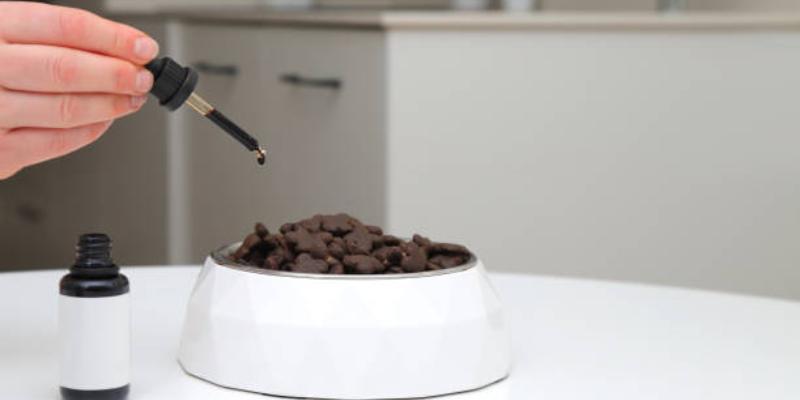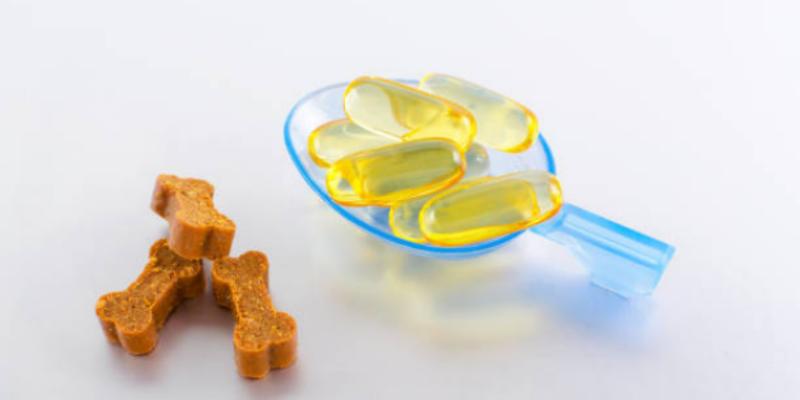Pets
Best Supplements For Senior Dogs (Joint Health And More)
As a dog parent, I know how much joy our furry friends bring. But as they age, their needs change, and it's up to us to help them stay healthy and comfortable. Senior dogs, just like older humans, can develop joint stiffness, slower digestion, or weaker immune systems. That's where supplements come in! After diving into research (and chatting with fellow dog lovers), I've compiled this guide to the best supplements for senior dogs. Let's break it down—no jargon, just practical advice.
As a dog parent, I know how much joy our furry friends bring. But as they age, their needs change, and it's up to us to help them stay healthy and comfortable. Senior dogs, just like older humans, can develop joint stiffness, slower digestion, or weaker immune systems. That's where supplements come in! After diving into research (and chatting with fellow dog lovers), I've compiled this guide to the best supplements for senior dogs. Let's break it down—no jargon, just practical advice.
Why Supplements Matter For Older Dogs
Senior dogs often need a little extra support. Their bodies don't bounce back as quickly, and everyday activities like climbing stairs or chasing squirrels can become more arduous. Supplements bridge the gap between their regular diet and the nutrients they need to thrive. Think of them as tiny health boosters in a chew or powder form.

Top Joint Health Supplements For Senior Dogs
Joint issues like arthritis are super common in older dogs. My pup struggles to get up after naps, so I understand this importance. Here's what works:
1. Glucosamine: The Cartilage Builder
Glucosamine is like a magic ingredient for joints. It helps repair cartilage, the cushiony stuff between bones that wears down over time. Many vets recommend it because it’s gentle and effective. Look for supplements that pair glucosamine with chondroitin, another joint-friendly compound.
2. Chondroitin Sulfate: The Protector
Chondroitin and glucosamine keep cartilage healthy and fight enzymes that break down joints. Together, they're like a dynamic duo for your dog's mobility.
3. MSM: The Anti-Inflammatory Hero
MSM (methylsulfonylmethane) reduces inflammation, a big deal for achy joints. It's a natural compound in plants and animals, so it's safe for long-term use.
4. Collagen: The Flexibility Booster
Collagen is the protein that keeps joints flexible and skin elastic. Their collagen production slows as dogs age, so adding it to their diet can make a difference.
5. Omega-3 Fatty Acids: The Swelling Soother
Omega-3s, like EPA and DHA from fish oil, are excellent for reducing joint swelling. They also support heart and brain health. If your dog loves fish-flavoured treats, they'll probably gobble these up.
Beyond Joints: Other Supplements For Senior Dogs
Joints aren’t the only thing to think about. Older dogs need holistic care to stay vibrant. Here’s what else to consider:
Antioxidants: The Immune System’s Best Friend
Antioxidants like vitamins C and E fight free radicals—those pesky molecules that speed up ageing. They keep your dog's immune system strong, which is key as they age.

Probiotics: The Gut Health Champion
Digestion can slow down with age, leading to upset stomachs. Probiotics add “good” bacteria to the gut, helping your dog absorb nutrients and stay regular.
Vitamin B12: The Energy Booster
B12 supports nerve function and energy levels. If your senior dog seems tired, this vitamin might be the needed pick-me-up.
Coenzyme Q10: The Heart Helper
This antioxidant supports heart health, which is crucial for large breeds or dogs with a history of heart issues.
How To Choose The Right Supplement
Not all supplements are created equal. Here’s how to pick the best ones:
Ask Your Vet First
Continuously loop in your vet before starting anything new. They know your dog's health history and can recommend the correct dosage.
Check the Ingredients
Avoid fillers like wheat, corn, or artificial flavours. The label should list active ingredients, like "glucosamine HCl" or "omega-3 fatty acids."
Consider the Form
Chews are easy to give (and feel like treats!), but powders or liquids mix well with food. If your dog is picky, try different forms to see what they like.
Start Slow
Introduce supplements gradually. A sudden change might upset their stomach. Begin with a small dose and increase it over a week.
Lifestyle Tips For a Happy Senior Dog
Supplements are just one piece of the puzzle. Here's how to support your dog's overall wellbeing:
Keep Them Moving
Short, gentle walks or play sessions keep joints limber. Swimming is fantastic for low-impact exercise.
Adjust Their Diet
Older dogs need fewer calories but more nutrients. Look for senior-specific foods with high-quality protein and fibre.
Regular Vet Visits
Catch health issues early with twice-yearly check-ups. Bloodwork can spot problems before symptoms show.
Create a Comfy Space
Orthopaedic beds and non-slip floors make it easier for your dog to rest and move around.
Final Recommendations For Your Senior Pup
Every dog is unique, so there's no one-size-fits-all answer. But combining the right supplements with love and care can make a huge difference. My golden retriever, Luna, started on glucosamine and omega-3s a year ago, and she's still chasing her favourite ball like a champ.
If you're overwhelmed, start with a vet-recommended joint supplement and add others as needed. The goal is to help your dog enjoy its golden years with as much joy and comfort as possible.



